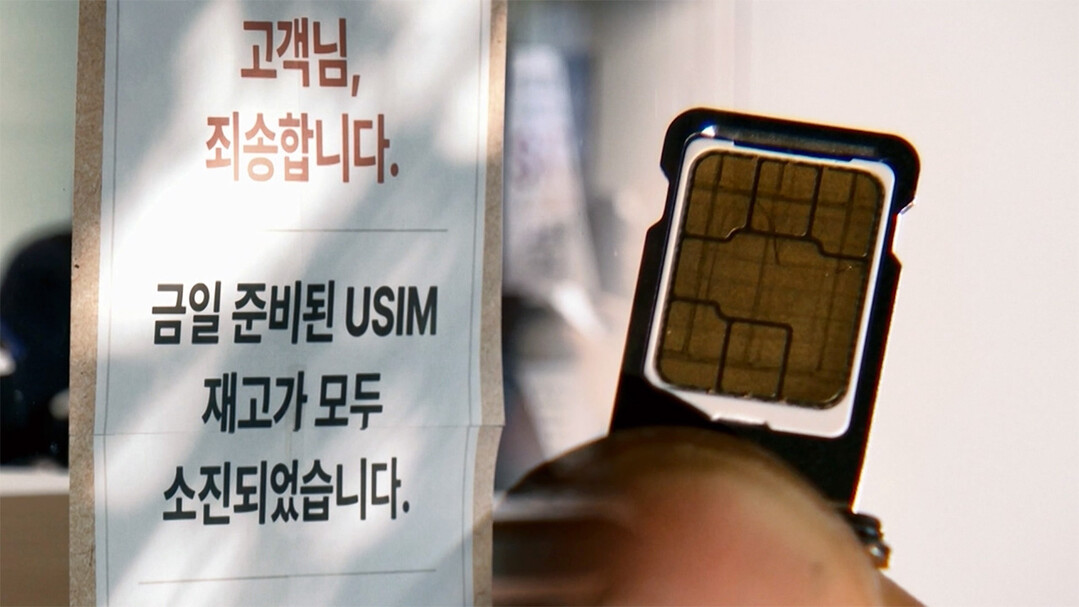
SEOUL, South Korea - South Korean telecommunications giant SK Telecom is scrambling to replace the USIM cards of its 23 million subscribers, plus an additional 1.87 million users on mobile virtual network operators (MVNOs) using its network, following a significant hacking attack that compromised user USIM information. The company announced that the free replacement program would commence on April 28th, alongside a strong recommendation for customers to subscribe to their 'USIM Protection Service' in the interim. SK Telecom has pledged to take full financial responsibility for any further damages incurred by subscribers, even those who have opted for the protection service.
However, the ambitious undertaking is already facing logistical hurdles. SK Telecom currently possesses a mere 1 million replacement USIMs and anticipates securing an additional 5 million by the end of May. This falls drastically short of the estimated 25 million USIMs requiring replacement, raising concerns about potential delays and widespread consumer frustration. Experts note that rapidly scaling up USIM production through manufacturers is a complex process, suggesting the replacement initiative could take a considerable amount of time.
In a public statement, SK Telecom acknowledged the potential for chaos as customers attempt to replace their USIMs, stating they are coordinating with the Ministry of Science and ICT to manage the situation. The company is urging subscribers who have activated the USIM Protection Service to remain patient and await their turn for a physical replacement. SK Telecom insists that the protection service offers equivalent preventative measures against the primary threat stemming from the hack: SIM swapping.
SIM swapping is a fraudulent technique where cybercriminals use stolen USIM information to clone a new SIM card. By inserting this cloned SIM into another device, they can intercept the victim's calls and text messages, potentially gaining access to sensitive accounts, including banking and cryptocurrency platforms. The leaked information from SK Telecom includes crucial identifiers such as the International Mobile Subscriber Identity (IMSI), International Mobile Equipment Identity (IMEI), and USIM authentication keys. While SK Telecom maintains that sensitive personal details like resident registration numbers and addresses were not compromised, a past SIM swapping incident in South Korea in 2022 has amplified public anxiety.
The USIM Protection Service aims to mitigate this risk by preventing unauthorized access to a user's communication services from a different device. As of late Sunday, 5.54 million SK Telecom subscribers (24%) had subscribed to the service. The company has also heightened the vigilance of its Fraud Detection System (FDS), designed to identify and block unusual activity, such as an abrupt device change request from a geographically distant location.
To facilitate the USIM replacement, SK Telecom will utilize its network of approximately 2,600 T World stores nationwide and airport roaming centers, commencing on Monday morning. The company also plans to launch an online reservation system shortly, allowing customers to select a preferred store for replacement and be contacted later to schedule an appointment.
Recognizing the urgency for international travelers, SK Telecom is also offering USIM replacements at major airport roaming centers, including an agreement with Incheon Airport to increase staffing by 50%. The company has also committed to compensating customers who experience SIM swapping losses overseas after departing without a replacement, as the USIM Protection Service is currently unavailable internationally. SK Telecom aims to extend the service's availability to overseas users by May.
The announcement of the hack and subsequent replacement program triggered a surge of concerned customers at SK Telecom retail locations over the weekend. Reports and images circulating on social media depicted long queues and frustrated customers being turned away due to a lack of available USIMs. SK Telecom has stated it will retroactively reimburse customers who paid for USIM replacements between April 19th and 27th, prior to the free program's launch, through bill deductions.
Amid growing public unease, Acting President and Prime Minister Han Duck-soo has directed relevant government agencies, including the Ministry of Science and ICT, the Korea Communications Commission, and the Personal Information Protection Commission, to thoroughly examine the adequacy of SK Telecom's response measures and prioritize the swift resolution of public inconvenience. He also emphasized the need for a transparent and comprehensive investigation into the root cause of the hacking incident. The coming days will be critical for SK Telecom as it attempts to manage the logistical nightmare of a mass USIM replacement while reassuring a concerned customer base.
[Copyright (c) Global Economic Times. All Rights Reserved.]






























